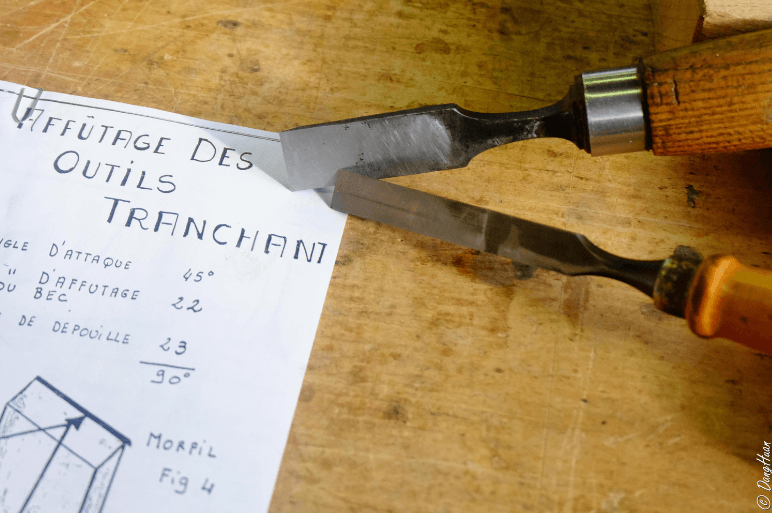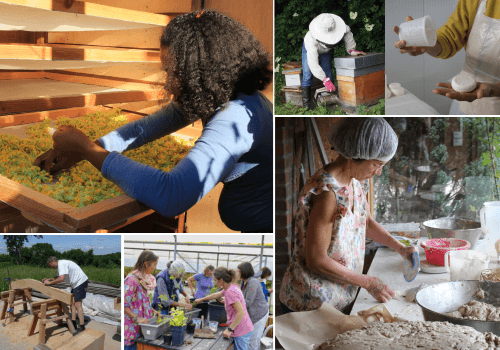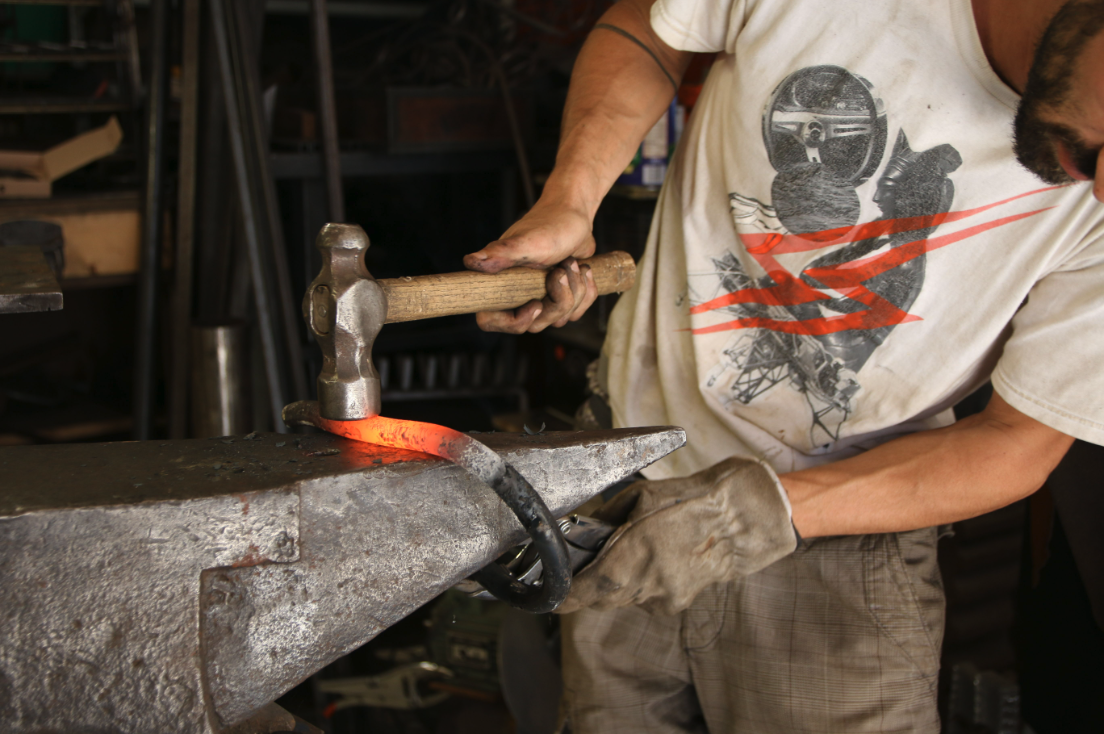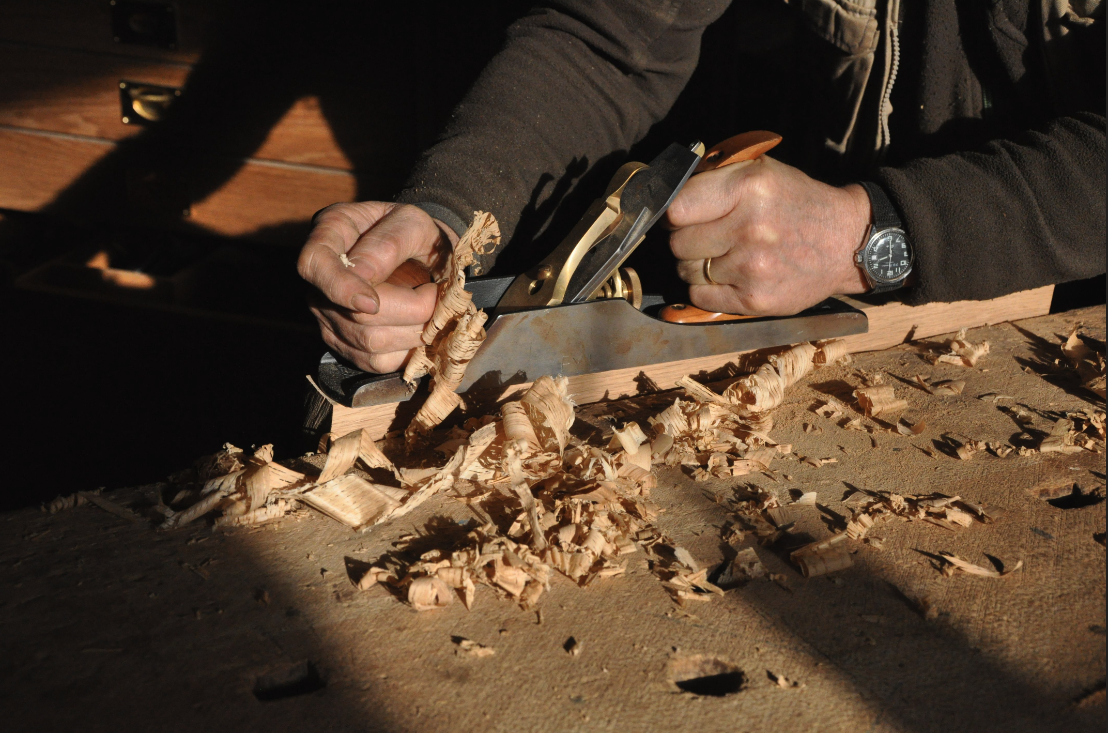Our support for wood, iron or leather crafts...

Our support for wood, iron or leather crafts...
Whether creating from raw materials or reusing them, craftwork offers considerable sources of creativity within a significant sustainable development framework.
Creating solid wood furniture from local wood, clothing from regional wool, vegetable-tanned leather bags... These craft activities make the most of local raw materials from agriculture, forestry or upcycling. Products that are not used for food can find an alternative outlet: leather or plant fibres from organic farms or wood from agroforestry can all be put to good use.
Working with wrought iron, creating or renovating stained glass windows, refurbishing furniture, seats, chairs, bicycles or even cars... The aim of these skills is to extend the life or give a new lease of life to everyday objects. They avoid drawing on natural resources by making new ones, and offer meaning and history to future buyers.
Consumers looking to reduce their environmental footprint are turning to artisanal products. Production outside the context of mass industry is attracting many new entrepreneurs. Craftspeople not only carry out production activities, but also provide services such as repairs, refurbishment and resale, which provides them with an additional income.
In France, a craftsperson is registered in the Trades Register and carries out a manual professional activity on a principal or secondary basis, on his or her own account, employing no more than ten people. Traditional craftsmanship is part of our intangible cultural heritage. The sharing of knowledge and know-how by the craftspeople themselves helps to perpetuate local trades. Whether it's a genuine source of income or an expression of creativity, local and traditional crafts offer many opportunities to express your talents. All the regions have the potential to develop their craft industries, and Lokal Eko brings together many craftspeople who have become experts in their field.
We offer tailor-made guidance and advice for craftspeople working with wood, iron, leather, etc.
Our craftspeople have developed their activities and their professionalism, using their creativity and high levels of efficiency to succeed. They have faced many questions themselves when setting up and in the day-to-day running of their business. They also often organise training courses. They are therefore in a position to provide support to entrepreneurs looking to set up their own business, or to members of the general public looking to learn more about basic and specialist skills.
They work with you to obtain quality raw materials at the best price.
They check that the moisture content and quality classification proposed is the right one; for iron (blacksmith), that the type or types of steel (locksmith, construction, alloys) are suitable for the work envisaged.
They will guide you in choosing the right equipment, sizing it in relation to its production and sales potential, and keeping it in good working order.
They will guide you in resolving equipment failures and doing your own repairs.
They will work with you to draw up a plan for your workshop, making sure that safety and ergonomic issues are taken into account.
They'll give you advice on creating your product range (and moving from drawings to plans), differentiating yourself from standardised industrial production, calculating margins and selling prices, and diversifying your business while minimising risks.
They can also help you to implement a new technique to improve efficiency, create a new sales channel to find new customers, build customer loyalty and develop partnerships.
Other examples of advice for working with wood, iron or leather
Our craftsmen/experts answer all the questions you may have on a daily basis.
Woodworking:
- Can you carry out your project with hand-held power tools only?
- Do you absolutely need a combination tool, a router, a band saw, a corrugator, etc.? ?
- Should I buy my equipment new or second-hand?
- How do you check the condition of second-hand equipment?
Talk to a woodworking consultant.
For forged iron :
- What sledgehammer, anvil, pincers... do I need?
- How do I choose my rolling mill?
Ask a blacksmith consultant to help you.
For leather or fabric :
- Which sewing machine for my project?
- How can I find a quality second-hand sewing machine?
- How can I check that it's in good working order?
Contact an upholstery expert.
Experts in woodwork, ironwork, leather ...
To meet these daily challenges, we have selected cabinet-makers, leatherworkers, stained-glass artists and blacksmiths to help you, whether you are a (future) professional or a passionate amateur, with technical and practical questions.
We also have experts available to support craftspeople in their development.
They can also guide you in choosing the right status for your objectives, and in organising your work.
They can help you design a workshop...
Articles

Artisanat et transition écologique

La transition écologique : la voie de l’avenir

Conseils techniques de base pour devenir forgeron amateur ou professionnel


 Français
Français
 British English
British English
 Español de España
Español de España